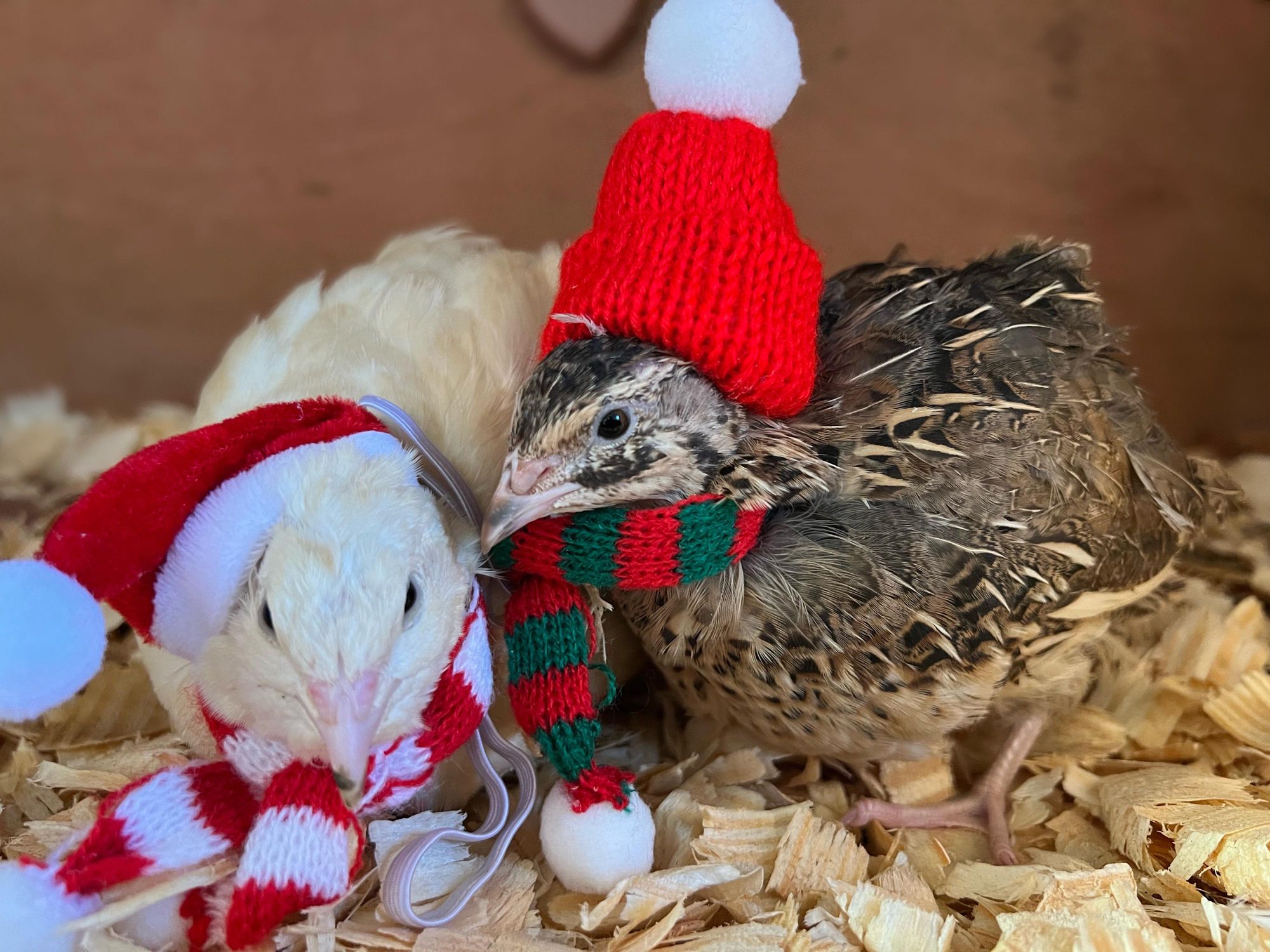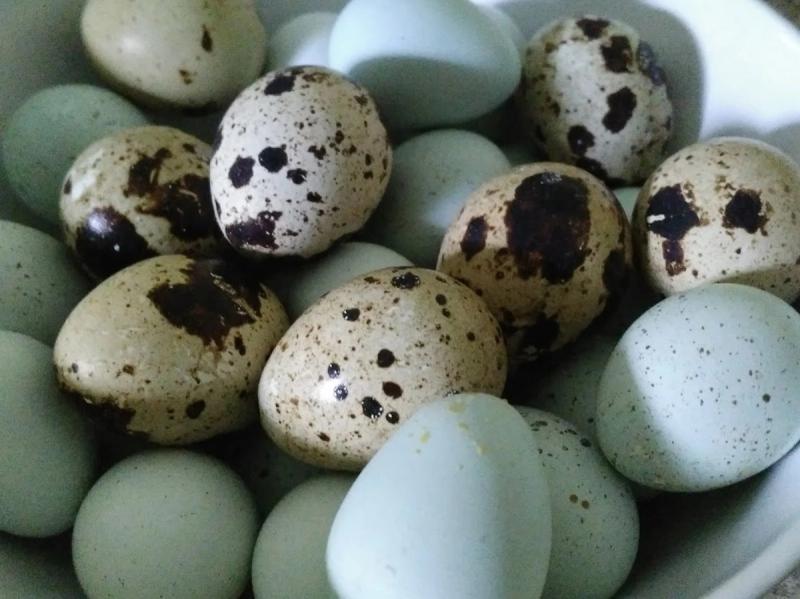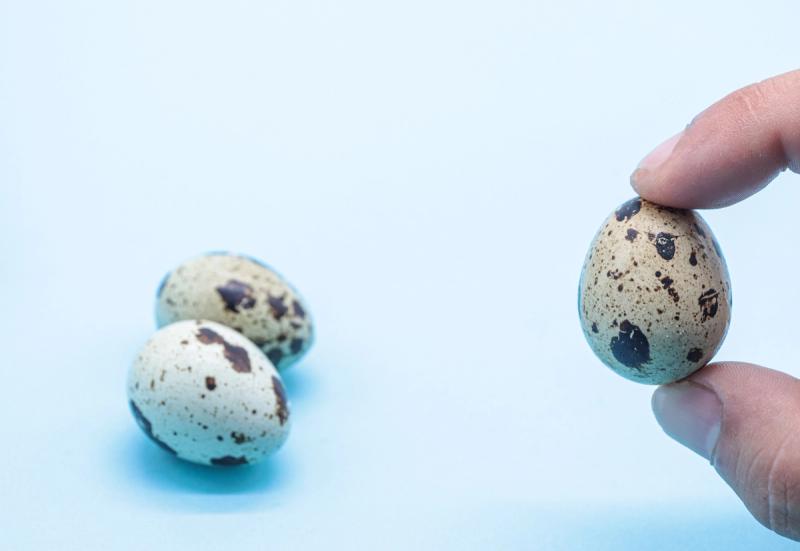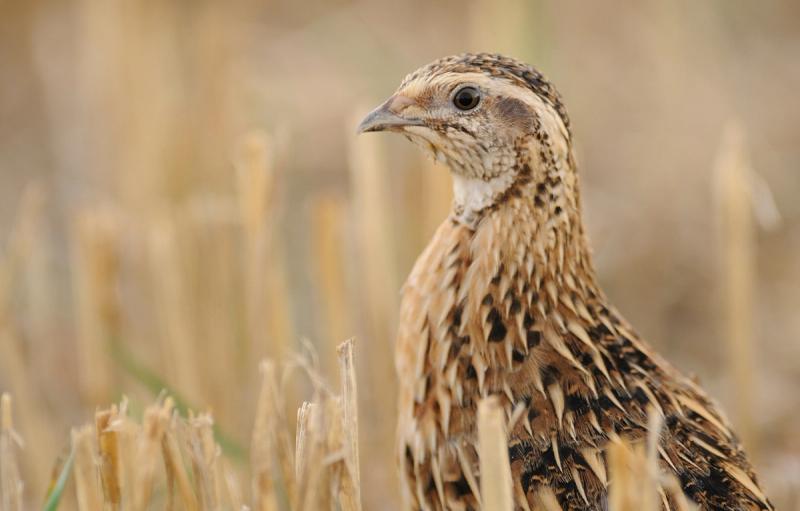Hardy…But Finicky
Coturnix quail egg production and care in the winter months


Coturnix quail, also known as Coturnix japonica, is a dual-purpose quail that is used for meat and egg production. Coturnix can lay 300 eggs a year under proper conditions. Although a high producer of eggs, Coturnix can experience reduced egg production in the wintertime due to shorter daylight hours and colder temperatures. In addition, they need additional care in the winter months.

Lighting
Most fowl will lay the best in springtime due to the longer daylengths. Providing supplemental lighting to quail of at least 14-16 hours of light per day simulates longer days and encourages egg laying.
LED lights or white Christmas lights on a timer will help trick the quail into increasing egg production. It also makes the quail area a bit festive, creating enjoyment for their owners. This trick works on other fowl too.
This method does not work well for the more seasonal game birds.
Temperature
Keep the quail housing warm and draft free, typically around 60-75 degrees F. (15-24 degrees C.), to prevent stress and maintain egg production.
Coturnix are known to be adaptable, and some do well in low-temperature climates. However egg production may be delayed if too cold or not provided supplemental lighting. If supplemental heat is needed, adding bedding (straw or wood shavings) or a heat plate will be wise.
It is advisable not to use heat lamps due to the risk of fire. Clean, dry bedding materials such as straw or wood shavings help insulate the floor of the quail housing. Make sure the area has some wind break.

Ventilation
While it is important to keep the housing warm, it is equally important to maintain proper ventilation to prevent moisture buildup. This can lead to respiration issues, affecting health and can cause death.
Coturnix are fast metabolizers, which creates a lot of waste and ammonia build up. Use adjustable vents to control airflow and plan to clean the areas often based on the number of birds being housed. A clean cage or pen will help with egg production and overall health.
Nutrition
Proper nutrition for Coturnix quail during the winter is crucial to support their health and maintain egg production. Providing a balanced, commercial or milled feed designed for game birds, high in protein content (typically around 24-30%), along with essential vitamins and minerals, will set the quail up for success nutritionally, especially during the winter months.
To help with staying warm, you can provide calories in addition to their balanced diet as treats. Millet or cracked corn can be given as treats. Other egg-production-supporting treats that quail will enjoy are protein-rich treats like mealworms and small crickets.
Treats should be given on occasion and not frequently, as too much fat can cause a reduction in egg production and more health problems for the bird. Avoid treats high in salt content, such as cat food, as salt toxicity is deadly to Coturnix quail.
As with other fowl, free choice grit is needed to help with digesting their food. Consider providing a calcium supplement like crushed oyster shells to support strong eggshell formation. Specific dietary needs of quail can vary depending on factors like age and purpose (meat or egg production).
Adjust their diet accordingly and consult with a poultry nutrition expert or veterinarian for more personalized guidance. Just like humans, not all quail are alike in dietary needs. Free choice feed or timed feeding is recommended.
Due to being high metabolizers, it is important for quail not to miss a meal. It can be detrimental to the bird.
Water
Ensure the quail always have access to fresh, clean, and liquid water—so infest in water heaters to assist in keeping the water unfrozen.
Dehydration can negatively affect egg production. It will affect the overall health of the bird and cause possible death, therefore ensuring the quail has access to water is imperative.
Stress management
Minimize disturbances and stressors in the quail environment, as stress can lead to decreased egg production. Stressors can be temperature fluctuations, predators, and outside elements. Keeping a well-insulated pen or cage that is draft free, in a well-ventilated predator-proof area will help the bird stay calm, and, in turn, aid in egg production.
Do note that if you change the environment or move birds, expect at least two weeks to a month of decreased egg production or a stop all together. Quail are adaptable but sudden change will stress them temporarily.
Winter may drive more predators to seek food sources. Secure the quail housing and add locks to prevent predation.
Quail are social birds and benefit from being housed with others. Ensure they have companionship to reduce stress. It is recommended not to house quail with other fowl, like chickens and ducks due to disease transmissions and bullying. It is recommended to house quail with their own kind.
While you can take these measures to maintain some level of egg production during winter, it’s important to note that Coturnix quail are naturally influenced by the change in seasons, and their egg production may not be as consistent during the winter months. Regularly check the quail for signs of illness or cold stress, such as lethargy or reduced egg production. Please seek veterinary care if necessary.
Remember that Coturnix quail are hardy birds, but proper winter care is essential to keep them healthy and maintain egg production. Tailor your care based on your specific climate and needs of your quail.

About the author
Alexandra Doss has been working with poultry for over 18 years. Known as the Quail Lady, as Coturnix quail was her first specialty on her selective breeding operation, Stellar Game Birds, Poultry, Waterfowl LLC in Florida. She has written two books on Coturnix husbandry. She and her husband focus on breeding heritage animals and breed preservation.

Chicken Whisperer is part of the Catalyst Communications Network publication family.











